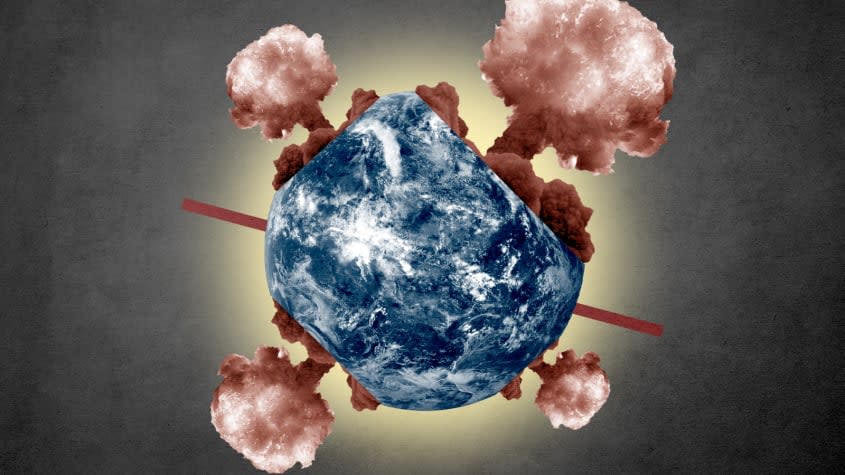Why Russia's big stash of small nukes isn't the advantage you fear

What's a tactical nuclear bomb? It is — drumroll please — a nuclear bomb.
But please don't worry; they're small ones. Some are "only" the size of the weapons that flattened Hiroshima and Nagasaki. Some are smaller than that. Some are so small they can be launched as artillery shells. Some can be dropped by airplanes or put on the tips of short(ish)-range missiles. Some tactical nukes could even be carried on your back, though it probably wouldn't be good for you.
There's been a fair amount of conversation online about the "tactical weapons gap." The United States has 230 of these smaller nukes, with reports that around 100 of those are in Europe. Russia has as many 2,000, most already in the European theater, and Russian President Vladimir Putin has seemed to indicate a willingness to use them, most likely if he felt himself to be losing in Ukraine, or if NATO joined the fight.
So, what would this gap really mean? Would it be decisive in a war?
No. "If we were to unleash a couple of hundred versus a couple of thousand [tactical nukes] it would be a distinction without a difference," Retired Air Force Maj. Gen. Robert Latiff told The Week.
The sheer destructive power of each side renders the details significantly irrelevant. Tit for tat, by the time the U.S. is outgunned, we're at 460 nukes launched. It's enough to destroy every tank in this war. It's certainly enough to kill millions of civilians. The Russians could keep going from there, but now we're into madness land. And having run out of the little nukes, and afraid of losing, would we really stop without resorting to one — just one — strategic bomb?
If that happens, a war like we've seen before becomes a war unlike anything we've ever seen before. A tactical nuclear strike has taken us into an unwinnable strategic nuclear war.
The truth is no one is sure what would happen if even one of these tactical nuclear bombs were used in war. According to Latiff, the international reaction would differ if it happened in Ukraine itself or, say, in Poland. But the only people who really know how escalation would work aren't telling. The strategy for reacting to a small nuclear provocation is top secret, Latiff said.
Does that uncertainty make it more likely or less Putin would use one of these bombs? He may bank on a sub-nuclear NATO reaction. Or he may hold back because he can't bank on that. There are a lot of generals paid to think about these things. All the world can do is hope they're thinking clearly.
You may also like
GOP senator says a war between NATO and Russia 'would end pretty quickly'
Shock and awe: An unprecedented financial conflict
There's a way to bring down gas prices, but you won't like it

